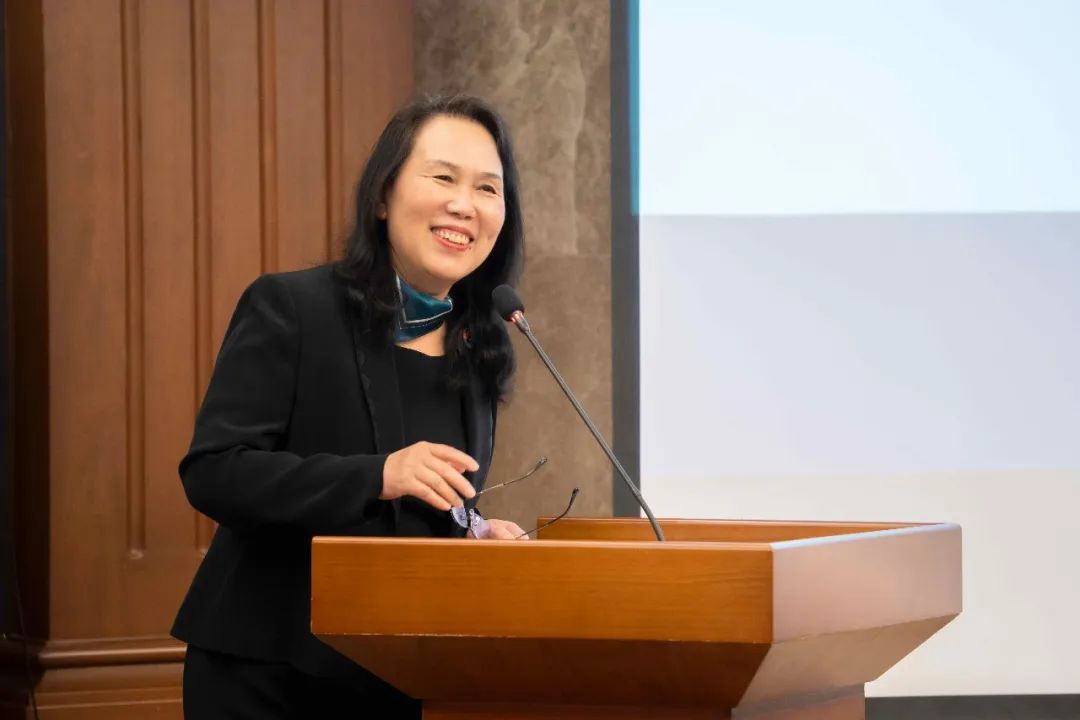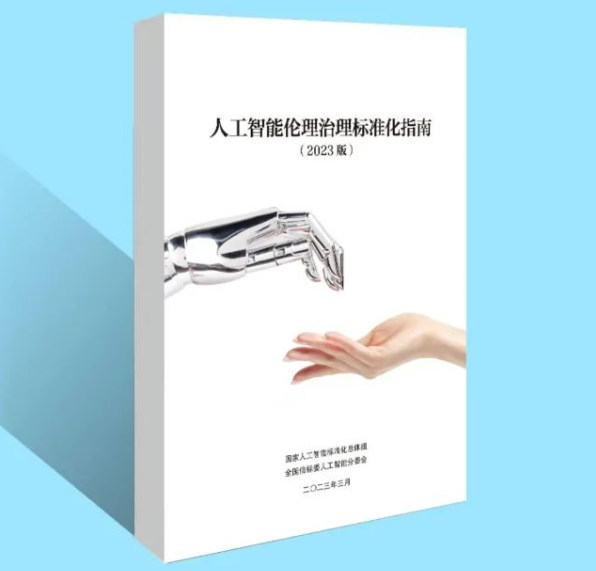[First Observation] Ding Yihao And Yang Yuchen: Strengthening The Ethical Awareness Of Artificial Intelligence To Empower Young People's Development
[First Observation] Ding Yihao And Yang Yuchen: Strengthening The Ethical Awareness Of Artificial Intelligence To Empower Young People's Development
The
The "Decision of the Central Committee of the Communist Party of China on Further Comprehensively Deepening Reforms and Promoting Chinese-style Modernization" passed by the Third Plenary Session of the 20th Central Committee of the Communist Party of China pointed out that it is necessary to "improve the development and management mechanism of generative artificial intelligence" and "establish an artificial intelligence security supervision system." As one of the three cutting-edge technologies in the 21st century, artificial intelligence is constantly breaking people's cognitive limits and subversively reshaping human life, work and communication methods. It is an important driving force for the new round of industrial transformation and scientific and technological revolution. At the same time, the risks and uncertainties such as prejudice, discrimination, privacy leakage, and responsibility attribute brought about by the rapid development of artificial intelligence have also aroused fundamental ethical concerns. We must vigorously strengthen the ethical governance of artificial intelligence with a global perspective and international sentiment, ensure that the research and development and application of artificial intelligence are in line with human ethics, and achieve better empowerment of global sustainable development in artificial intelligence.
Adhere to people-oriented approach, focus on benefiting the people, and especially empowering the development of young people
Artificial intelligence is a special manifestation of human consciousness initiative, and it is the realization and objectification of human power. General Secretary Xi Jinping pointed out: "We must take satisfying people's yearning for a better life as the end point of scientific and technological innovation, and take benefiting, benefiting, enriching the people, and improving people's livelihood as an important direction of scientific and technological innovation." The ethical governance of artificial intelligence must adhere to the people-oriented as the logical starting point, adhere to the human-centered value orientation, focus on the development of all mankind, especially empowering the development of young people, protecting social security, respecting human rights and interests, avoiding misuse of technology, prohibiting the abuse of technology, and maintaining human subjective status as the main line of connecting the development of artificial intelligence, put responding to the fundamental interests of human beings first, protecting and promoting the common values of human beings, serving the progress of human civilization, promoting the healthy development of human society, and promoting the continuous development of artificial intelligence to benefit, benefiting, enriching the people, and improving people's livelihood.
We must attach importance to the ethical construction of the ethical and moral construction of scientific researchers, especially the protagonists in the field of artificial intelligence - the main body of technological inventions and the main body of technology use of young people, vigorously improve the moral review system, establish a feedback mechanism for scientific research ethical issues, guide scientific researchers to consciously abide by scientific and technological ethical requirements, clarify R&D ethical standards and moral frameworks, and cultivate scientific researchers' correct value orientation and a strong sense of social responsibility and mission. We must protect the individual's rights of "informed consent", focus on respecting and protecting human rights, strictly abide by the bottom line of scientific and technological ethics, and will not harm humans, obey human orders, and protect themselves as much as possible through the practice of R&D and application. We must actively improve the artificial intelligence ethics system for the entire life cycle, improve the responsibility mechanisms such as artificial intelligence ethics security review, clarify the responsibilities, obligations and regulatory rules of artificial intelligence ethics governance, build an intelligent supervision system that is linked internally and externally, and review and supervise artificial intelligence applications in all aspects and throughout the process to improve the compatibility of technology and social values. We must follow the ethical position of "people are the purpose", take into account the technical and social attributes of artificial intelligence, attach importance to the normalized scenario-based evaluation of the interactive results of artificial intelligence and personal development and social operation, and build an artificial intelligence ethical evaluation system that ultimately points to enhance people's well-being, safeguard people's dignity, and empower young people's development.
Adhere to intelligence and goodness, focus on safety, reliability and control
As a technical tool to serve the sustainable development of human society, artificial intelligence must meet the value demands of leading the vast number of young people and even the entire society to be upward and good. General Secretary Xi Jinping pointed out that "creating a first-class innovation ecosystem, shaping the concept of science and technology for goodness, improving global science and technology governance, and better improving human welfare." Intelligence for goodness is rooted in the concept of excellent traditional Chinese culture for goodness, and inheriting and developing Marx's science and technology ethical ideas is a powerful response to the ethical problems of artificial intelligence that are generally faced by human society. To promote good governance and guide artificial intelligence toward a direction that is conducive to the progress of human civilization, we must adhere to the importance of both artificial intelligence development and governance, innovation and security; clarify the ethical boundaries of artificial intelligence application, promote the parallelization of scientific and technological innovation and ethical governance, build a safe, reliable and controllable artificial intelligence ethical ecology, and strive to achieve high-quality development and high-level safety and benign interaction in the field of artificial intelligence.
We must strengthen algorithm management, accelerate breakthroughs in core artificial intelligence technologies, reduce algorithm deviations, expand pre-evaluation methods for automated decision-making, and continuously reduce the infringement of big data killing old customers, information cocoon rooms, algorithm black boxes, etc. on the interests of young people as core users. It is necessary to ensure the security and reliability of artificial intelligence, give full play to the complementary advantages of hard and soft laws of artificial intelligence ethics governance, make full use of diversified ethical governance mechanisms and policy tools, and gradually build a verifiable, auditable, supervisable, traceable, predictable and trustworthy artificial intelligence systems; strengthen the management of artificial intelligence ethical risk assessment, optimize the risk assessment model, define the risk, application risk, and management risk levels of artificial intelligence ethical technology, realize the hierarchical targeted governance of young people of all ages, and promote the construction of an artificial intelligence security guarantee system. We must strengthen the fairness and non-discrimination of artificial intelligence, promote the universalization of networks, computing power, data, etc., promote the rational allocation of resources, build an inclusive and prudent artificial intelligence system, and ensure that all types of subjects have equal opportunities to obtain artificial intelligence resources; fully consider the actual needs of relatively marginalized and vulnerable young people for artificial intelligence, avoid strengthening or solidifying discriminatory and prejudiced decisions and results, effectively protect the legitimate rights and interests of all relevant stakeholders, and achieve a greater degree of digital inclusion.
Adhere to harmony and symbiosis, focus on co-construction, co-governance and sharing
Artificial intelligence, as a representative technology and general technology for the new round of scientific and technological revolution and industrial transformation, is a new issue faced by countries around the world. General Secretary Xi Jinping pointed out: "China is willing to work with all countries in the world to seize the opportunities of digital, networked and intelligent development, deepen international cooperation in the development of artificial intelligence and governance, and work hard to promote the healthy development of artificial intelligence, promote world economic growth, and enhance the well-being of people in all countries." At present, some ethical risks brought by the development of artificial intelligence that threaten global stability and undermine the overall values of human beings require the governance subject to breakthroughs in the scope of one country or several countries, strengthen communication, establish mutual trust, and jointly explore ethical governance models that meet the needs of human development. "In the face of common challenges, no one or any country can survive alone. Human beings can only have the way out of unity and harmony and symbiosis." As an important value concept of China's excellent traditional culture, symbiosis advocates the mutual benefit of interdependence and common development among multiple subjects. Adhering to harmony and symbiosis and carrying out global artificial intelligence ethical governance with an open and interoperable attitude is not only an inevitable measure to form a global governance consensus and effectively respond to ethical risks, but also an appropriate strategy to achieve effective value calibration and ethical adjustment of artificial intelligence and promote the co-construction, governance and sharing of global artificial intelligence ethical governance.
We must build consensus through dialogue and cooperation, build an open, fair and effective governance mechanism, and create a development space for mutual benefit and win-win cooperation; enhance mutual understanding between different cultures and countries, promote the formulation and implementation of relevant principles, policies, standards and laws of ethical governance, and continuously bridge the gap from technical governance to ethical governance.
Author: Ding Yihao (Head of the Shenyang Ideological and Political Work Innovation and Development Research Center, Professor of the School of Marxism, Northeastern University); Yang Yuchen (Student of the School of Marxism, Northeastern University)

![[First Observation] Ding Yihao And Yang Yuchen: Strengthening The Ethical Awareness Of Artificial Intelligence To Empower Young People's Development](https://lcs-sfo.k4v.com/assets/public/default_cover.jpg)



